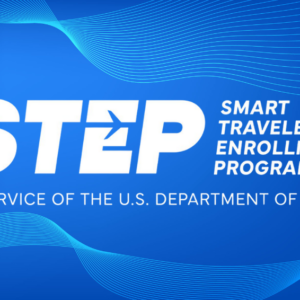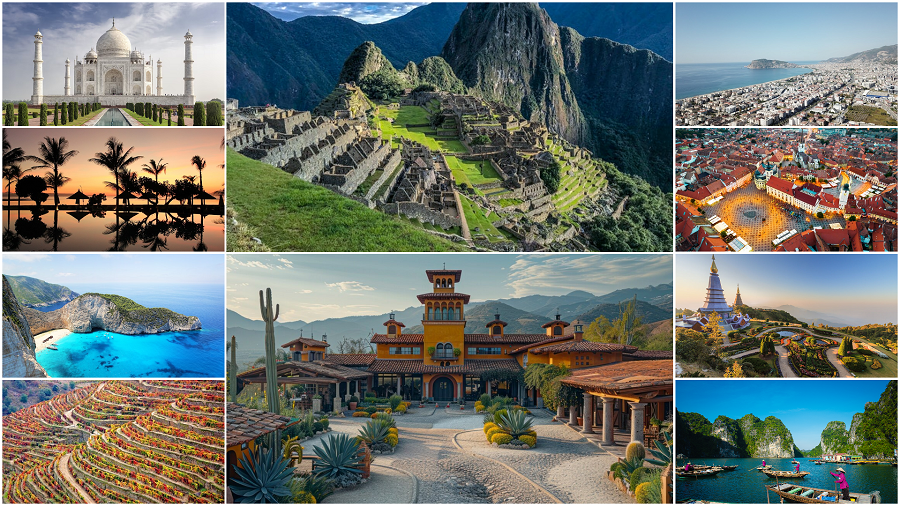As an NRI, it is essential to have a valid birth certificate as it serves as proof of identity and age. It also unlocks many opportunities and rights for NRIs that are not available without one.
Awareness has increased the proportion of registered births and deaths over the years. This awareness has resulted in a legitimate registry of births for the country, which has increased to 92.7% in 2019 from 82.4% in 2011.
Do you know the reasons?
It is connected with the opportunities and rights that a birth certificate can help you claim. In the case of non-residents of India, this fact is also viable. They can also gain multiple advantages by drawing it from the municipal corporation or the embassy in the host nation.
Non-residents of India (NRIs) have easy access to multiple opportunities and enjoy numerous rights that they acquire by birth. This is indeed a crucial paper that is identity and citizenship proof. With it, you can leverage government schemes and other advantages. This article will help non-residents discover every benefit, opportunity, and right associated with birth proof.
Opportunities That a Birth Certificate Brings to NRIs
Non-residents are people of Indian origin. They have the right to claim the leverage that a birth certificate brings.
1. Citizenship and identity documentation
Well, it’s difficult to identify the citizenship and true identity of a person. This is where the concept of birth registration evolved. In India, there are some laws and regulations that prove the non-resident belongs to this country. Specifically, the Citizenship Act of 1955 constitutes a legal framework where NRIs’ right to citizenship is clearly mentioned. A birth certificate can help them claim that right for identification. It also helps them attain the legal status of an Indian by origin, which also empowers them with administrative rights. They can invest, sell, purchase, or interact with competent authorities without barriers.
2. Educational Opportunities
Educational opportunities are easily accessible to Indians, irrespective of any boundary. Simply put, if you belong to this nation, it’s your legal right to obtain education from any school, college, or institution that is located in this country. And many NRIs come here for technical and medical education while leveraging this right to education. It means that non-residents of this country can study here, provided they have proof of their belongingness to this country. And what else than a birth certificate can prove it?
3. Employment and professional opportunities
Working in any country is not easy. You have to pass through the immigration process. And for that, it’s a must to have a birth certificate. This means that Indian expats have to prove their connection with this country, which a birth certificate can do. The stringent laws of foreign countries disallow an individual to work if they fail to prove their citizenship. So, having a birth certificate brings employment opportunities.
4. Inheritance and property rights
Many Indian parents leave properties for their heirs. Out of them, many are those who have settled abroad. They have to pass through legal barriers to claim their rights. In this,
Non-residents can attain fortune through inheritance. They may acquire property or real estate in India as an heir or heiress of any Indian family. To claim their rightful share and deal in property without any hassles, this document can help a lot. It proves your claim and ensures that the process of inheritance is smooth in India.
5. Government schemes and benefits
There are multiple government schemes that can help draw benefits and opportunities from them. Expats from this country can also leverage these benefits. These benefits can be drawn in the form of subsidies, scholarships, investment plans, the national pension scheme, child plans, public provident funds, money-back policies, capital guarantee plans, etc. These and multiple programmes are available for non-residents, which cannot be utilised unless they have Indian birth certificates.
6. Voting Rights
A citizen of India living abroad or individuals who do not have acquired citizenship are otherwise eligible to cast their votes. One has to fill out Form 6A and enclose an attested photograph on the passport. This passport can never be obtained unless they have their birth certificate. It is treated as proof of citizenship.
7. Social Security and Welfare Programmes
However, it’s been mentioned. NRIs are eligible for insurance, the national pension scheme, the FCNR account and its benefits, a child plan, etc. But before this, a birth certificate would be required to prove their connection with India. However, those who haven’t gotten their birth registered with the municipal corporation can contact the respective embassy in the country of their residence. Or, the website of the Indian consul has all the details to ensure it.
8. Healthcare Services
To deal with medical emergencies, health insurance in India can provide great care. So, they can purchase suitable health insurance from here, which also facilitates a GST refund on their health insurance premium privilege. This facility is for those who are tax payers in a foreign country. Besides, these insurance facilities cover at-home doctor visits, physiotherapy, elderly care services, medical care, nursing visits, medical equipment on rent and sale, lab tests, and ECG/holter at home. All in all, NRIs can reap these benefits through their birth proof.
9. PAN Card and Financial Transactions
A PAN card expands for a permanent account number, which helps the government track financial transactions in India. A non-resident can have it through an application form (which is Form 49A). To verify it, one has to enclose the birth proof while submitting this application at the NSDL eGov website.
10. Passport and Visa Processes
It’s a necessity for Indian expats to carry their passport, which is issued through verification. To verify, one has to have a passport (valid or expired), education qualification certificates, a birth certificate, permanent address proof in India, overseas address proof, a marriage certificate (if applicable), a spouse’s passport (for endorsing the spouse’s name on your passport), travel tickets (for Tatkaal applications), and supporting documents for changes in detail.
11. Marriage Registration
Matrimony is a big event in one’s life. For the marriage registration here or anywhere, the applicant has to show up his or her birth certificate. This practice helps in registering their marriages anywhere, be it in India or abroad. So, the birth proof is treated as proof of identity and citizenship to further register a marriage.
12. Single Status Certificate
This is associated with the singleness or bachelorhood of a person. Non-residents have to have their birth certificate to verify the application of their single status certificate. Although this is not the only document, it is a must to share along with a passport, photograph, absolute decree (if you have one), or death certificate (of the late spouse).
Rights Associated with an Indian Birth Certificate for NRIs
With these opportunities, NRIs also have certain rights that having a birth certificate can help them claim.
1. Right to Citizenship
The Citizenship Act 1955, Section 5(1), and further revisions in this act (2003) express that having a birth proof proves that the NRI or OCI cardholder is an Indian native. It has empowered this right for the acquisition and loss of citizenship since the day the constitution was executed. It is implemented in cases where non-residents ordinarily live in India for 12 months before registering their eligibility for citizenship.
2. Right to Education
Non-residents are also considered natives of India. It directly facilitates their access to the fundamental rights given in the Indian Constitution. It covers another right, which is the right to equality. It entitles them to receive equal treatment as mentioned in this law, no matter where they live. This fundamental principle applies to employment, education, and exposure to public services.
3. Right to Employment
Indian expats share an equal right with residents to work here, provided they have obtained a work permit. This permit is given to those who reside abroad for at least 183 days in a financial year. Also, it is for those who have lived in India for less than 365 days in the previous four years but less than 60 days in that very year. Now, the 60-day rule is transformed into 182 days for non-residents who have settled abroad temporarily for employment or any other purpose. This relaxation of the day can be restricted to 120 days if the NRI earns INR 15 lakh or more in India.
4. Right to Inheritance
Inheritance can enrich NRIs with a gift, which can be in the form of property or anything. But this gift can never be acquired without a gift deed. But if it’s an immovable property, this deed would be covered under Section 17 of the Registration Act, 1908. Moreover, they can inherit any immovable property for residential, commercial, and agricultural purposes. But this transfer would be in compliance with Foreign Exchange Management Act (FEMA) regulations.
5. Right to Vote
NRIs also have the right to vote, given they have completed 18 years. Also, they must not be registered with a foreign country. For registration, an online facility is available. They can visit the Election Commission of India at www.eci.gov.in and get registered. But beforehand, they have to fill out the enrollment form (Form 6A) online, enclosing birth and residence proof. Alternatively, they can physically visit the concerned Electoral Registration Officer (ERO).
6. Right to Welfare Programmes
The Indian government has come up with multiple welfare programmes. The National Pension Scheme (NPS) is to open an NRE, NRO, or NPS account, which can start with INR 500. The Overseas Indian Citizenship (OCI) Scheme was introduced in 2006 to ensure visa-free travel. Likewise, Pravasi Pension Scheme Kerala, Indian Community Welfare Fund (ICWF), Know India Programme (KIP), Pravasi Bharatiya Bima Yojana (PBBY), and Compensatory Provisions for Work-Related Injuries and Disabilities in KSA and GOSI Insurance-like schemes can be leveraged. With birth proof, it can be easy.
7. Right to Access Government Services
The Indian government comes up with several schemes, which include exemption from paying tax on income generated abroad. Likewise, the OCI scheme was introduced with the goal of pushing NRIs to join various government services so that they could remain engaged with their home country.
8. Right to Marry and Family Benefits
This is mainly connected with the Special Marriage Act, 1954. Under Section 4 of the Act, Indian expats can solemnise marriage in this country, no matter where they come from or which country’s citizens they are. This Act allows them to get married and regulates their marriage with the authority here. So, NRIs get recognition by the law here while ensuring that they can enjoy the rights and privileges regarding this union in this country and abroad.
9. Right to Legal Proceedings
This is mainly concerned with legal protection. Simply put, the right to legal proceedings, wherein non-resident Indians (NRIs) are involved, is protected by various laws and their provisions. If you consider the Code of Civil Procedure (CPC) and the Code of Criminal Procedure (CrPC), they are protected. Like any Indian citizen, they can be litigated against or sue anyone under Sections 9 to 11 of the CPC, which is the horizon of civil courts. Also, they can have a fair trial if summoned in criminal cases. These provisions act as a framework that ensures legal protection. Also, they allow them to participate in the court trial.
10. Right to Have a Passport and Travel
The Passport Act of 1967 provides the right to have a passport and travel in India. It mandates the issuance of the passport to get rid of litigation. This means that they can provide their birth certificate along with other requisite proofs in order to get a passport. Section 7 of the aforementioned Act has a clear description of resident Indians. It can be connected with the elaboration of the eligibility criteria and all terms and conditions connected with this section and act. It certainly has the specific role of a birth certificate.
Conclusion
Having a birth certificate from India attracts multiple leverages and opportunities to utilize. This document is often required when one has to prove their identity & citizenship. With it, people from Indian diaspora in the foreign country can use it to have educational, professional, and social benefits in India.






